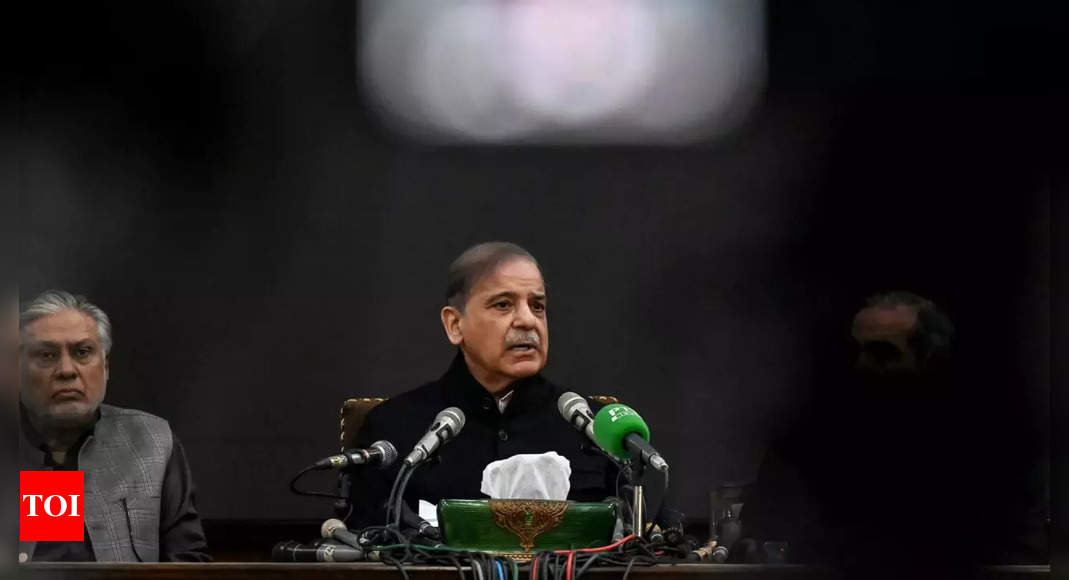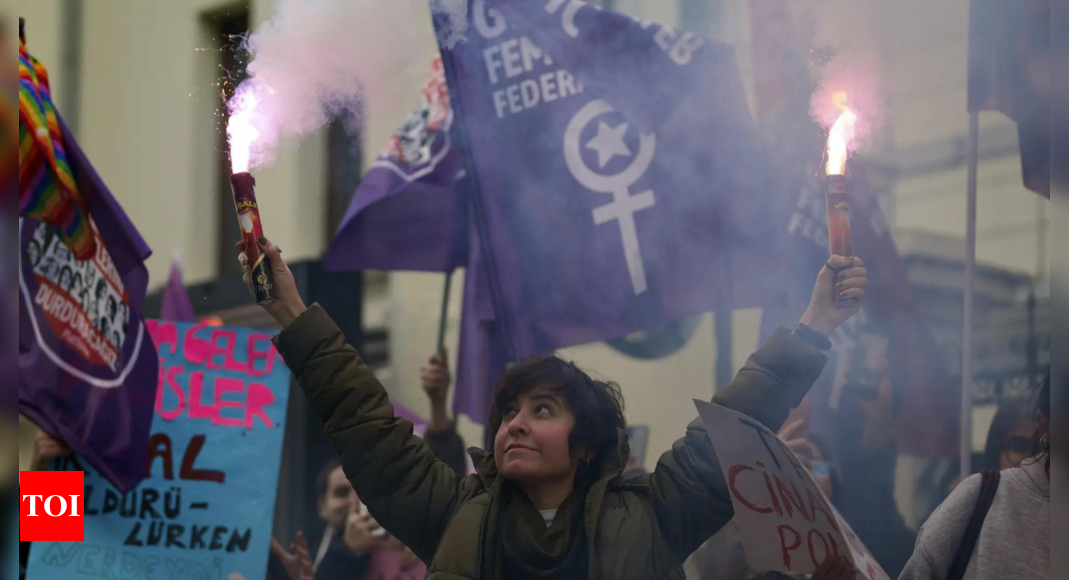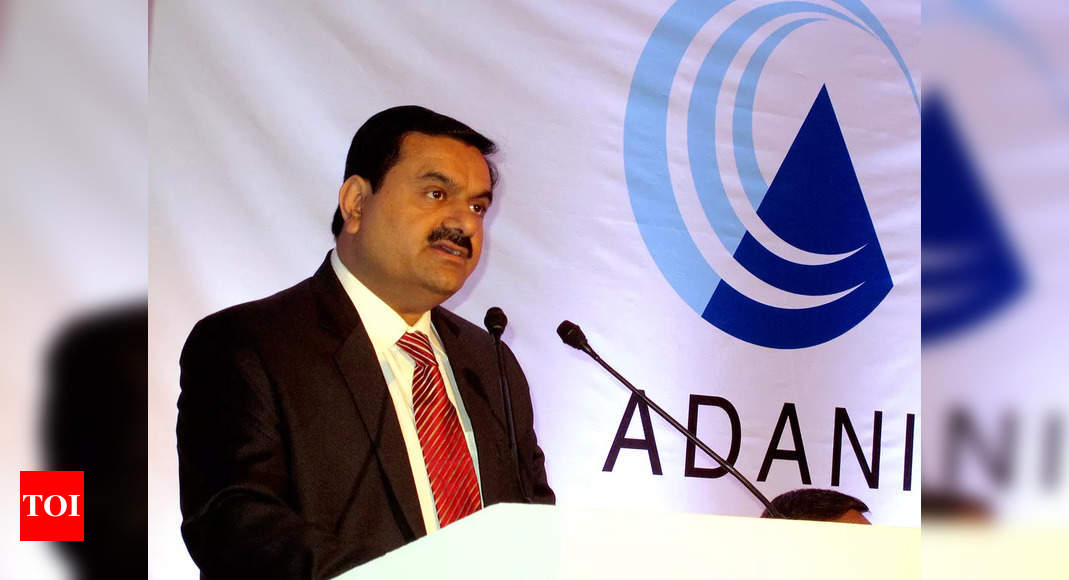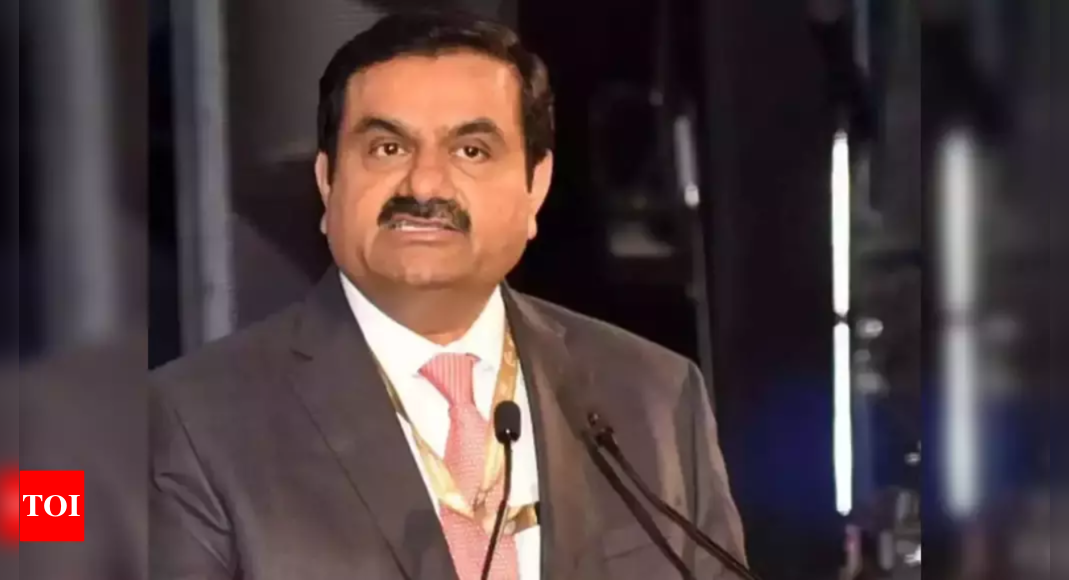
ISLAMABAD: Pakistan’s ISI has received a carte blanche from the Shehbaz Sharif govt to intercept phone calls and messages “in the interest of national security” amid nationwide outrage over the allegedly unbridled powers the spy agency already enjoys.
The authorisation to tap calls and messages was issued Monday by the ministry of information and telecommunication, citing multiple complaints about people mysteriously going missing in the troubled provinces of Baluchistan and Khyber Pakhtunkhwa.
“In exercise of the powers conferred under law, the federal government, in the interest of national security and in the apprehension of any offence, is pleased to authorise the officers not below the rank of grade 18, to be nominated from time to time by the ISI, to intercept calls and messages, or to trace calls through any telecommunication system as envisaged under the Pakistan Telecommunication (Re-organisation) Act,” the order states.
The move comes in the wake of criticism by some Pakistani judges, journalists, opposition politicians and supporters of jailed former PM Imran Khan about the Shehbaz administration allowing ISI to breach citizens’ rights in the name of national security.
In March, six high court judges accused the spy agency of interfering in judicial matters and taking recourse to “intimidatory” tactics such as secret surveillance, abduction of targets, installation of cameras in bedrooms, and torture of their family members.
Although intrusive surveillance by spy agencies isn’t uncommon in Pakistan, not many spoke up against it until purported audio clips, including those of Imran and his wife Bushra Bibi, were leaked in the lead-up to this year’s general elections.
Last Dec, Imran’s wife had filed a petition in Islamabad high court, challenging “unauthorised” surveillance and privacy violations.
During the course of the hearings, it was revealed that the Pakistan Telecommunications Authority had mandated telecom companies to finance, import, and install a mass surveillance system to access public data.
A day earlier, the interior ministry defended the months-long ban on social media platform X on the ground that it was a “threat to peace and national security”. The ban was clamped on Feb 17 based on “intelligence reports”.
“The hostile elements operating on X have nefarious intentions to create an environment of chaos and instability, with the ultimate goal of destabilising the country and plunging it into some form of anarchy,” the ministry said.
The authorisation to tap calls and messages was issued Monday by the ministry of information and telecommunication, citing multiple complaints about people mysteriously going missing in the troubled provinces of Baluchistan and Khyber Pakhtunkhwa.
“In exercise of the powers conferred under law, the federal government, in the interest of national security and in the apprehension of any offence, is pleased to authorise the officers not below the rank of grade 18, to be nominated from time to time by the ISI, to intercept calls and messages, or to trace calls through any telecommunication system as envisaged under the Pakistan Telecommunication (Re-organisation) Act,” the order states.
The move comes in the wake of criticism by some Pakistani judges, journalists, opposition politicians and supporters of jailed former PM Imran Khan about the Shehbaz administration allowing ISI to breach citizens’ rights in the name of national security.
In March, six high court judges accused the spy agency of interfering in judicial matters and taking recourse to “intimidatory” tactics such as secret surveillance, abduction of targets, installation of cameras in bedrooms, and torture of their family members.
Although intrusive surveillance by spy agencies isn’t uncommon in Pakistan, not many spoke up against it until purported audio clips, including those of Imran and his wife Bushra Bibi, were leaked in the lead-up to this year’s general elections.
Last Dec, Imran’s wife had filed a petition in Islamabad high court, challenging “unauthorised” surveillance and privacy violations.
During the course of the hearings, it was revealed that the Pakistan Telecommunications Authority had mandated telecom companies to finance, import, and install a mass surveillance system to access public data.
A day earlier, the interior ministry defended the months-long ban on social media platform X on the ground that it was a “threat to peace and national security”. The ban was clamped on Feb 17 based on “intelligence reports”.
“The hostile elements operating on X have nefarious intentions to create an environment of chaos and instability, with the ultimate goal of destabilising the country and plunging it into some form of anarchy,” the ministry said.









